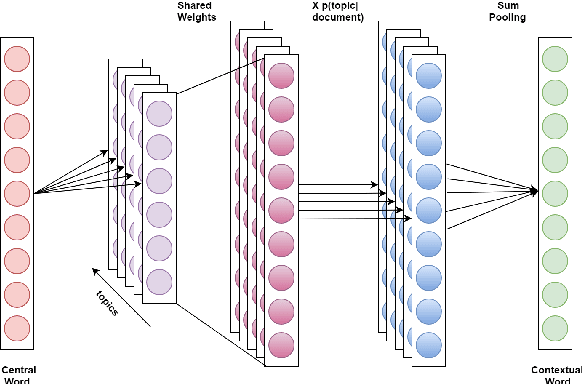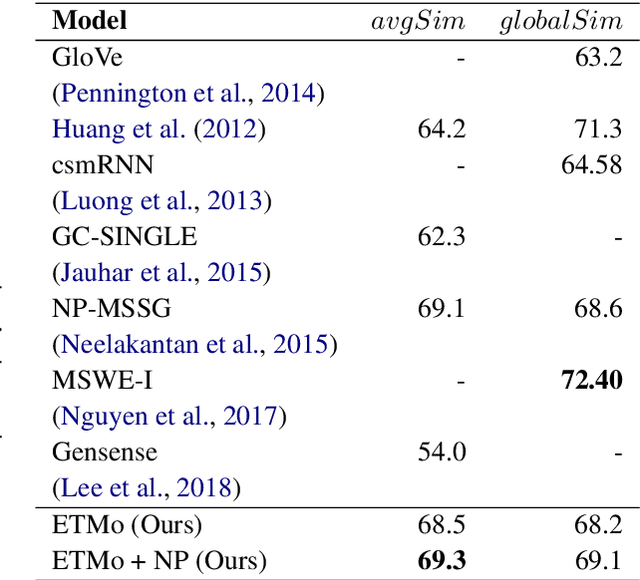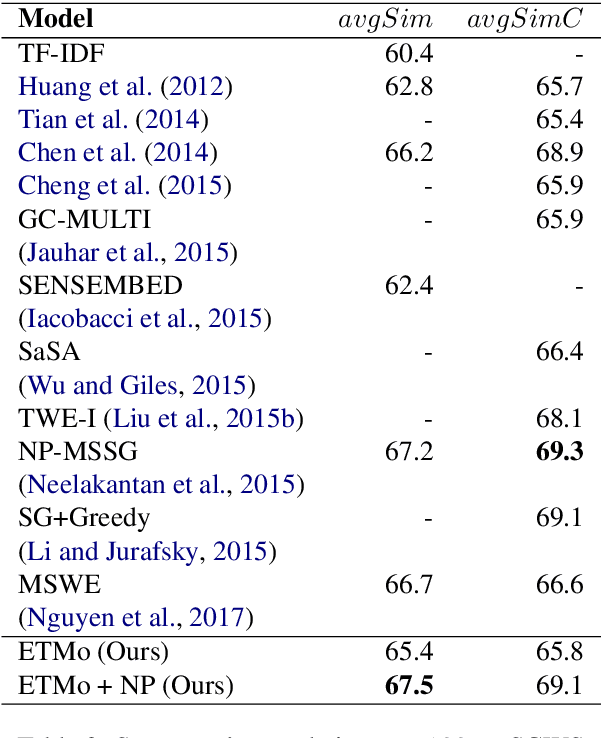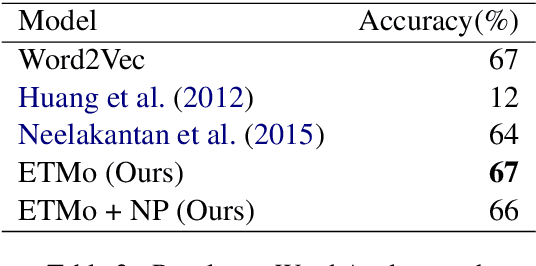Multi Sense Embeddings from Topic Models
Paper and Code
Sep 17, 2019



Distributed word embeddings have yielded state-of-the-art performance in many NLP tasks, mainly due to their success in capturing useful semantic information. These representations assign only a single vector to each word whereas a large number of words are polysemous (i.e., have multiple meanings). In this work, we approach this critical problem in lexical semantics, namely that of representing various senses of polysemous words in vector spaces. We propose a topic modeling based skip-gram approach for learning multi-prototype word embeddings. We also introduce a method to prune the embeddings determined by the probabilistic representation of the word in each topic. We use our embeddings to show that they can capture the context and word similarity strongly and outperform various state-of-the-art implementations.
 Add to Chrome
Add to Chrome Add to Firefox
Add to Firefox Add to Edge
Add to Edge